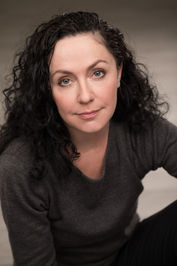Trauma
Interview with Rene Denfeld, Author of "The Child Finder"
New novel asks: Is it ever too late to be found?
Posted September 19, 2017
Rene Denfeld writes about what she knows in her new novel, The Child Finder, an intriguing literary suspense novel about a private investigator who mines the trauma of her own past to find a missing girl. Denfeld, a survivor of child abuse, is a licensed investigator in the state of Oregon and the mom of three kids adopted from foster care. This is one of those stories that nobody else could have written, and everyone should read. Here’s more from my interview with Rene Denfeld:

Jennifer Haupt: You’ve written about child abuse extensively in nonfiction, and I’m wondering how much more difficult — or easier — it was to write about the issues tackled in The Child Finder in fiction?
Rene Denfeld: For me, fiction can tell a far deeper, more complex truth, because we become the characters, we see the world through their eyes. Fiction allows the reader to connect to experiences in ways far beyond facts and statistics. It’s the empathy with that person, their heart, their soul. In this way fiction lets us see how people survive abuse, too, and heal and recover. For me it is a more positive and hopeful message. Because healing is possible.
JH: You’ve been a therapeutic adoptive foster parent for twenty years, including raising three children adopted from foster care. Is there a line between using your experiences to inform your fiction and revealing the traumatic experiences of your children and clients?
RD: I have very strong feelings about protecting the dignity and sanctity of victims. This is why there is never anything graphic in my novels. I don’t want to exploit or violate the privacy of a victim, even if they are fictional. Some of the events in The Child Finder are inspired by real life, but they are not modeled after my kids or clients. Much of my writing is inspired by my own abuse history, as I suffered severe abuse. I think it’s okay to mine your own life.
I have written nonfiction essays about my kids, including a recent New York Times “Modern Love” column called “Four Castaways Make a Family.” I waited 20 years before I wrote anything about being a foster-adoptive parent, because I wanted to make sure my kids were grown and could give permission. They were totally on board and loved it. If you read that essay you’ll see I don’t share why my kids went into foster care, or anything that felt private for them. Those stories are for them to tell, not me. I think the rule for a writer can be, just because you know it doesn’t mean you have a right to write about it.
JH: Was there a question you wanted to answer, for yourself, while writing this novel? If so, was the answer revealed and was it at all surprising?
RD: Wow, what a question! That’s insightful. You know, there was a question I had for myself, and I wasn’t aware of it until the end. The question was this: Do I deserve to be found? And the answer was so redemptive, so hopeful, that even in my own shame and my own recovery from it, those deep fears instilled by childhood abuse, that I too deserve to be found. We all do.
JH: What do you hope that readers dealing with trauma — and those trying to better understand the lasting effects of traumatic experiences will take away from this novel?
RD: You deserve to be loved including your trauma, not despite it. You deserve to be loved right now, wherever you are in your journey. We need each other to heal. It’s a myth that healing is something we must do internally, all by ourselves. Healing is the great gift we can give each other. It’s the hand we can reach out. It’s the way we honor each other’s experiences. Together we can form an army, of those who have walked the side of sorrow and seen the dawn. There is tremendous strength in survival. There is joy and magic and hope in life, even during struggle.
JH: Were you surprised by the cliff hangers at the end, or were those planned?
RD: I was floored! When I write I feel I am going on a journey with the characters, and I’m just as eager to find out as they are. I won’t give away the end, but it really shook me up, gladded and inspired me—and made me eager to find out more.
JH: What’s the one true thing you learned from your characters in this novel?
RN: As one of my favorite lines in the book goes, “no matter how far you have run, no matter how long you have been lost, it is never too late to be found.” It’s the most beautiful truth, because it includes us all.
(END)


